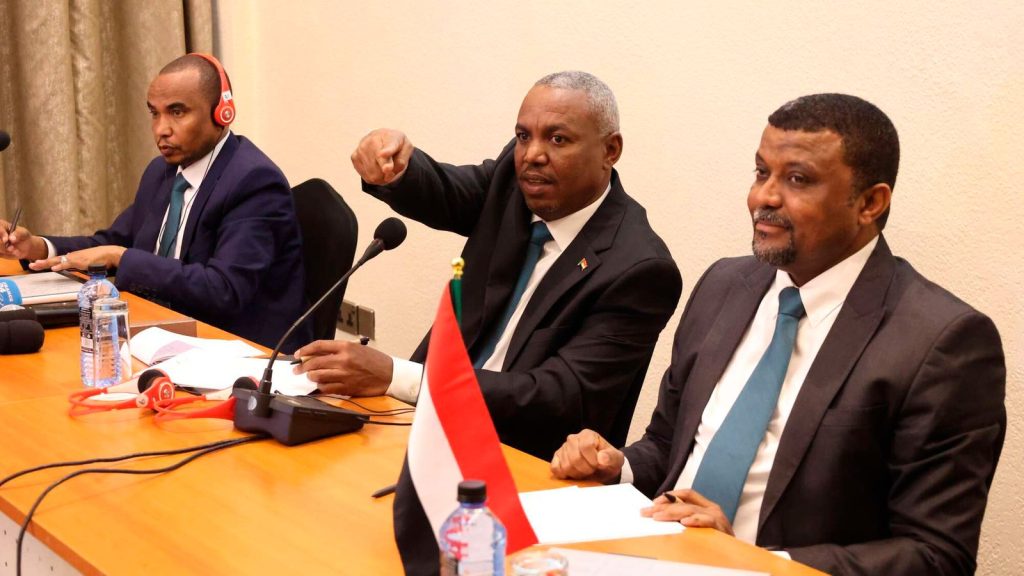The Rapid Support Forces (RSF) negotiating delegation, led by Brigadier General Omar Hamdan, held a press conference at the Sarova Panafric Hotel in Nairobi. The delegation reaffirmed their commitment to achieving a nationwide ceasefire, supporting Sudan’s democratic transition, and addressing the country’s root causes of conflict.
Hamdan, joined by Counselor Muhammad Al-Mukhtar and Counselor Ezz El-Din El-Safi, emphasized the RSF’s readiness for inclusive political discussions aimed at ending the war and creating a stable and democratic Sudan. “We stand ready to engage in inclusive and comprehensive political talks to address Sudan’s root causes of conflict, end all wars, and build a peaceful, stable, and democratic nation,” Hamdan stated while delivering a joint statement.
The RSF highlighted their endorsement of a nationwide ceasefire and welcomed international and regional efforts to restore Sudan’s democratic transition. They also pledged to create safe corridors for humanitarian aid and ensure the protection of civilians and aid workers in conflict-affected areas.
Despite these commitments, the RSF has faced significant accusations, including alleged backing by external actors such as the United Arab Emirates (UAE) and other non-Sudanese entities. Critics argue that such support has bolstered the group’s military capabilities, prolonging the conflict in Sudan.
The RSF has also been accused of severe human rights violations, including mass killings, sexual violence, and the deliberate targeting of specific communities in Darfur and other parts of Sudan. Reports from human rights organizations have detailed atrocities that include widespread rape, the destruction of villages, and acts of ethnic cleansing. These allegations have drawn international condemnation and calls for accountability.
Despite controlling significant regions in Sudan, including Darfur, Al-Jazira, Kordofan, and parts of Khartoum, the RSF emphasized their commitment to peaceful resolutions. The group reiterated their support for the Juba Peace Agreement, advocating for a political system that includes marginalized groups such as women and youth to reflect Sudan’s diversity.
The RSF also revisited their foundational principles established in 2013, which include defending Sudan’s sovereignty, safeguarding borders, and protecting its people. Over the years, they have undertaken significant challenges, such as combating human trafficking, curbing illegal arms, and supporting those trapped in dangerous migration routes.
The RSF’s role during the 2018 uprising against Omar al-Bashir’s regime was highlighted as a pivotal moment. Aligning with public demands for change, the RSF played a critical part in ending one of Africa’s bloodiest dictatorships, further cementing their stance as a force committed to Sudan’s stability and sovereignty.
The delegation concluded by reiterating their support for a comprehensive political process that fosters peace, inclusion, and a sustainable democratic future for Sudan, while rejecting the allegations against them as politically motivated.

